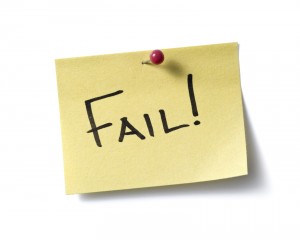 A state-accredited California law school unsuccessfully sued several years ago to try to prevent a bar exam passage rate rule from going into effect.
A state-accredited California law school unsuccessfully sued several years ago to try to prevent a bar exam passage rate rule from going into effect.
Now that school, the Southern California Institute of Law, is one of two institutions the State Bar says is in noncompliance with the bar passage standard and could potentially lose its accreditation as a result.
Schools accredited by the State Bar of California, as opposed to the American Bar Association, must maintain a 40 percent cumulative bar exam passage rate for the preceding five-year period.

[QUIZ] Unlock More Time In Your Day With A Smarter Workflow
See how much time your firm could be saving. Use our free law firm time savings calculator to uncover efficiency gains and take control of your day.
A recent State Bar report indicated 13 of 15 state-accredited schools were in compliance.
But the bar report said the Southern California Institute of Law’s most recent five-year passage rate figure was 25.3 percent. That was down 1.1 percentage points from what the school with campuses in Ventura and Santa Barbara reported last year.
The Southern California Institute of Law provided an updated pass rate to the bar in late August, but a bar spokeswoman said the agency could not divulge the revised figure because it was still being verified.
Pacific Coast University School of Law in Long Beach was the other school that fell short of the bar passage standard. The school’s most recent five-year figure was 26.6 percent, up slightly from what it reported in 2018.

How Strong Is Your Firm’s Financial Visibility?
Discover how to gain more control over your firm’s finances and unlock smarter growth strategies—take a quick financial visibility quiz designed for law firms.
“Here, because these two schools’ noncompliance was identified in 2018, the required Notice of Noncompliance has already been issued to each school,” a State Bar memo said. “The values presented now demonstrate continued Noncompliance.”
The bar plans to move forward with inspections of each school to determine whether they are “not in compliance with the rules for specific reasons that warrant probation or termination of accreditation.”
The Committee of Bar Examiners voted in August to direct bar staff to schedule telephonic inspections of the two schools within 60 days.
“The telephonic inspection will permit the schools to provide information or clarification regarding their compliance with — or plan to come into compliance with — the [minimum pass rate] requirement,” a bar spokeswoman said.
Bar staff wrote to the Committee of Bar Examiners that they anticipated they could provide the panel with an update as soon as its December meeting.
“If termination of accreditation is appropriate, either directly or after a period of unsuccessful probation, a school may seek registration as an unaccredited law school if it can establish compliance with those rules and guidelines,” the staff memo said.
Unaccredited law schools are not subject to the minimum bar passage rate requirement, though their students must take the “Baby Bar” exam. The most recent pass rate on that test was 24 percent.
Stanislaus Pulle, dean of the Southern California Institute of Law, said he was optimistic his school would not lose its accreditation or face other serious consequences due to its bar passage rate.
He said only a small number of his school’s graduates typically take the bar exam each year, so if one more graduate passed each test, the school’s pass rate would be in the 40 percent range.
“When you have small numbers, these kind of percentage pass rates are not a realistic reflection of anything,” Pulle said.
His school unsuccessfully turned to the courts to try to halt the passage rule from going into effect by arguing that it was unconstitutional and would harm minority and lower-income students.
Andrea L. Lua, dean of Pacific Coast University School of Law, did not respond to requests for comment.
 Lyle Moran is a freelance writer in San Diego who handles both journalism and content writing projects. He previously reported for the Los Angeles Daily Journal, San Diego Daily Transcript, Associated Press, and Lowell Sun. He can be reached at [email protected] and found on Twitter @lylemoran.
Lyle Moran is a freelance writer in San Diego who handles both journalism and content writing projects. He previously reported for the Los Angeles Daily Journal, San Diego Daily Transcript, Associated Press, and Lowell Sun. He can be reached at [email protected] and found on Twitter @lylemoran.